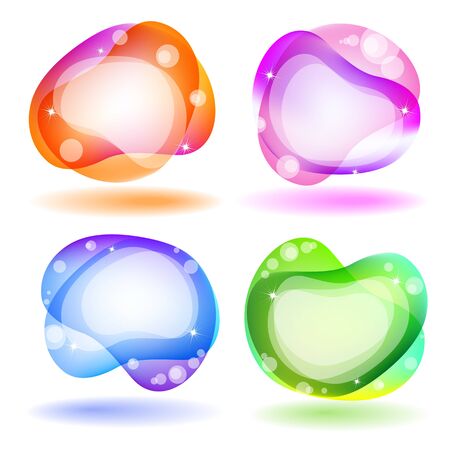Introduction to Crystal Balls in British Cultural Context
Crystal balls have long held a place of intrigue and reverence within British culture, weaving their way through the fabric of folklore, mysticism, and contemporary spiritual practices. From the windswept moors of Cornwall to the bustling streets of London, these shimmering orbs are more than just decorative curiosities—they are iconic symbols of divination and insight, deeply rooted in the nations rich tapestry of legend and belief. Historically, crystal balls were associated with wise women, cunning folk, and Victorian-era mediums, all seeking glimpses into the unknown. In modern Britain, their allure endures, with crystal balls featuring prominently in holistic shops, psychic fairs, and private rituals alike. Their roles have evolved alongside shifting attitudes towards spirituality, yet they remain potent tools for scrying, meditation, and connecting with the unseen realms. This enduring fascination not only reflects Britains storied past but also highlights the ways in which ancient practices continue to inspire present-day seekers on their spiritual journeys.
2. Common Materials and Types of Crystal Balls Used in Britain
When it comes to crystal ball maintenance and cleansing practices in Britain, understanding the materials from which these mystical spheres are crafted is essential. The choice of material not only influences the aesthetic and energetic properties but also affects how the crystal ball should be cared for.
Popular Materials: Quartz, Amethyst, and Glass
Across the UK, three materials dominate the crystal ball scene: quartz, amethyst, and glass. Each has its own unique appeal among practitioners and collectors alike.
| Material | Features | Cleansing Sensitivity | Typical Uses |
|---|---|---|---|
| Quartz (Clear & Rose) | Highly prized for clarity and energy amplification | Medium – can withstand water and gentle cleansers | Scrying, meditation, general divination |
| Amethyst | Purple hue, calming vibrations, protective qualities | Sensitive – avoid prolonged sunlight exposure | Spiritual insight, emotional healing, clarity rituals |
| Glass (Lead or Non-lead) | Affordable, flawless appearance, no innate energy | Low – very durable but energetically neutral | Aesthetic display, beginners’ scrying practice |
Regional Preferences & Unique British Sources
Britain’s diverse landscape has shaped regional preferences over centuries. In areas such as Cornwall and Cumbria, locally sourced quartz enjoys a cult following due to its storied connection with ancient British folklore. Scottish practitioners often favour amethyst sourced from native deposits in Aberdeenshire, believed to enhance the mystical properties of their rituals. Meanwhile, urban centres like London and Manchester see a strong market for high-quality lead crystal glass balls, valued for their craftsmanship and modern appeal.
The Role of Local Artisans and Heritage Brands
Supporting local artisans is a point of pride within British esoteric circles. Traditional glassmakers in Stourbridge or Yorkshire continue to produce hand-blown crystal balls using techniques passed down through generations. This blend of local heritage and spiritual practice gives many British crystal balls a distinct identity—one that practitioners feel deepens their connection to the land and its energies.
Summary Table: Regional Material Preferences in Britain
| Region | Preferred Material | Reason for Preference |
|---|---|---|
| Cornwall & Cumbria | Local Quartz | Ancestral folklore connections; abundance of natural quartz deposits |
| Scotland (Aberdeenshire) | Amethyst | Locally mined; associated with Scottish mysticism and protection rituals |
| Larger Cities (London, Manchester) | Lead Crystal Glass | Aesthetic value; appreciation for artisan glassmaking traditions |

3. Traditional British Cleansing Rituals
Britain’s landscape—whether windswept moor or bustling city—has nurtured a unique tapestry of crystal ball cleansing customs that blend the mystical with the practical. For generations, practitioners in both rural and urban settings have relied on time-honoured methods to keep their scrying tools energetically clear and attuned.
Moonlight Purification
One of the most cherished British practices involves placing the crystal ball beneath the light of a full moon. This tradition, rooted deeply in Celtic folklore and later embraced by Victorian occultists, is believed to draw upon the moon’s renewing energies. Whether on a Cornish windowsill or a London balcony, this ritual remains popular for its simplicity and potent symbolism.
The Role of Salt
Salt has long been revered in Britain as a purifying agent. In rural villages across Yorkshire or Devon, it’s common to see practitioners resting their crystal balls atop beds of coarse sea salt overnight. This method is said to absorb negative vibrations and refresh the stone’s clarity—a nod to ancient superstitions that once saw salt sprinkled across thresholds for protection.
Local Botanicals and Urban Adaptations
Botanicals native to Britain—such as rosemary, lavender, and sage—are often incorporated into cleansing rituals. Some wrap their crystal balls in muslin pouches filled with dried herbs, while others gently waft smoke from a burning bundle around the sphere. Urban dwellers may substitute traditional open-air cleansings with discreet indoor smudging, adapting centuries-old countryside customs to fit modern metropolitan life. These enduring practices highlight not only a respect for nature’s gifts but also the creative adaptability at the heart of British magical traditions.
4. Modern Approaches to Maintenance
While Britain has a rich tapestry of traditional crystal ball cleansing rituals, modern approaches have emerged, reflecting both practicality and the eclectic influences of New Age spirituality. Today’s practitioners often blend time-honoured beliefs with contemporary lifestyles, making crystal ball maintenance accessible to everyone from seasoned mystics to curious beginners.
Contrasting Traditional and Contemporary Methods
In the past, British mystics might have relied on moonlit nights, sacred herbs, or incantations to cleanse their crystal balls. However, contemporary Britons often opt for more pragmatic methods—without losing sight of ritual significance. The table below outlines key differences:
| Traditional Rituals | Contemporary British Adaptations |
|---|---|
| Soaking in natural spring water | Rinsing under tap water (preferably filtered) |
| Passing through incense smoke (sage or mugwort) | Using scented candles or essential oil sprays |
| Reciting old incantations or folk prayers | Setting intentions in plain English or silent meditation |
| Placing on a bed of wildflowers or herbs | Resting on a clean cloth in a quiet corner of the home |
The Practical British Touch: Cleaning Tips
Modern British crystal ball enthusiasts often favour a “keep calm and carry on” attitude. Here are a few practical tips embraced in the UK:
- Gentle Polishing: Use a soft, lint-free cloth—microfibre is popular—for regular dusting. Avoid kitchen roll, as it can scratch the surface.
- Mild Soap Solution: For deeper cleans, a drop of mild washing-up liquid in lukewarm water works wonders. Rinse thoroughly and dry naturally.
- Avoid Harsh Chemicals: Most Britons steer clear of bleach or abrasive cleaners, which can damage both the crystal and its energy.
- Seasonal Cleansing: Some combine spring cleaning traditions with spiritual maintenance, giving their crystal balls an annual refresh as part of household tidying up.
New Age Influences in the UK
The rise of holistic wellness and mindfulness across Britain has brought new layers to crystal ball care. Influences from global New Age movements are evident in practices such as:
- Sound Cleansing: Using tuning forks, singing bowls, or even favourite Britpop tracks to “vibrate” away stagnant energy.
- Full Moon Charging: Placing crystal balls on windowsills during a full moon—a nod to both ancient Celtic rites and modern lunar mindfulness trends.
- Community Circles: Sharing cleansing rituals at local spiritualist groups or wellness studios from Brighton to Edinburgh, blending tradition with communal support.
Blending the Old and the New
Ultimately, modern British approaches are less about rigid dogma and more about personal resonance. Whether you prefer a hint of Victorian mystique or a no-nonsense kitchen table clean, today’s maintenance rituals are as diverse as Britain itself—practical, inclusive, and always evolving.
5. Superstitions and Etiquette Around Crystal Ball Handling
In Britain, the mystique of the crystal ball is closely intertwined with age-old superstitions and a distinct set of manners that govern its use. Many practitioners and enthusiasts believe that a crystal ball should never be touched by anyone other than its owner or designated reader, as contact from strangers is thought to cloud the energies and disrupt the bond between seer and sphere. This belief has given rise to an unspoken rule: always ask permission before handling another’s crystal ball, even in casual settings or among friends.
Beyond this, there are traditional do’s and don’ts observed throughout the country. For instance, placing a crystal ball directly on the floor is widely frowned upon; it is seen as disrespectful and potentially invites negative influences. Instead, custom dictates that the orb be placed on a soft cloth or dedicated stand when not in use—preferably one made from natural materials like wood or velvet, echoing British appreciation for craft and heritage.
Social etiquette also plays a crucial role during readings. Interrupting someone while they are gazing into their ball is considered ill-mannered, as it breaks concentration and may disturb any visions forming within the crystal. Many British practitioners will light a candle or incense as a sign that a session is underway—a subtle cue borrowed from Victorian spiritualist parlours, where such practices first flourished in local culture.
Prevailing superstitions further advise against leaving a crystal ball exposed under direct sunlight for prolonged periods, particularly in historic regions such as Cornwall or Yorkshire where folklore is deeply rooted. It’s said that too much sunlight may ‘drain’ the ball’s energy or cause unwanted spirits to be drawn to its glow. To counteract this, some opt to cover their spheres with silk cloths embroidered with protective symbols after each use.
These rituals—whether based on personal belief or inherited tradition—reflect a broader British respect for privacy, boundaries, and symbolism. They serve both practical and ceremonial purposes, ensuring the integrity of readings while maintaining an air of reverence around these captivating artefacts.
6. Respected British Practitioners and Communities
Britain boasts a vibrant tapestry of practitioners and communities who have not only preserved the art of crystal ball maintenance and cleansing but have also reimagined it for modern times. Among the most respected figures is Cassandra Latham-Jones, based in Cornwall, who is renowned for her dedication to traditional Cornish witchcraft and her public workshops on spiritual tool care. In London, shops like Treadwell’s Bookshop and The Atlantis Bookshop serve as central hubs for the city’s esoteric community, offering both rare crystal balls and expert advice on their upkeep. Moving north, the Scottish Highlands are home to practitioners such as Mairi NicLeòid, who blends Celtic folklore with contemporary practices, hosting cleansing ceremonies that draw visitors from across the UK.
Shops and Suppliers Leading the Way
Specialist retailers play a crucial role in sustaining this tradition. In Glastonbury, known as the heartland of British mysticism, shops like The Speaking Tree and Star Child not only sell ethically sourced crystal balls but also run regular classes on cleansing rituals using local spring water and native herbs. These establishments foster a sense of community, where newcomers and seasoned practitioners alike can share techniques and stories.
Innovative Groups and Gatherings
The field continues to evolve thanks to groups such as The Order of Bards, Ovates & Druids (OBOD), who integrate crystal ball practices into their seasonal ceremonies, adapting ancient wisdom for today’s spiritual explorers. Online platforms, including UK-based forums and social media groups, provide spaces for British enthusiasts to exchange tips on maintenance techniques unique to the damp British climate or discuss the best times for lunar cleansing aligned with local folklore.
Keeping Tradition Dynamic
What unites these individuals and collectives is a deep respect for heritage coupled with a willingness to innovate. Whether through reviving historic methods or experimenting with new cleansing materials sourced from Britain’s diverse landscapes, these practitioners ensure the crystal ball remains a living tradition—deeply rooted yet ever-evolving within British culture.


